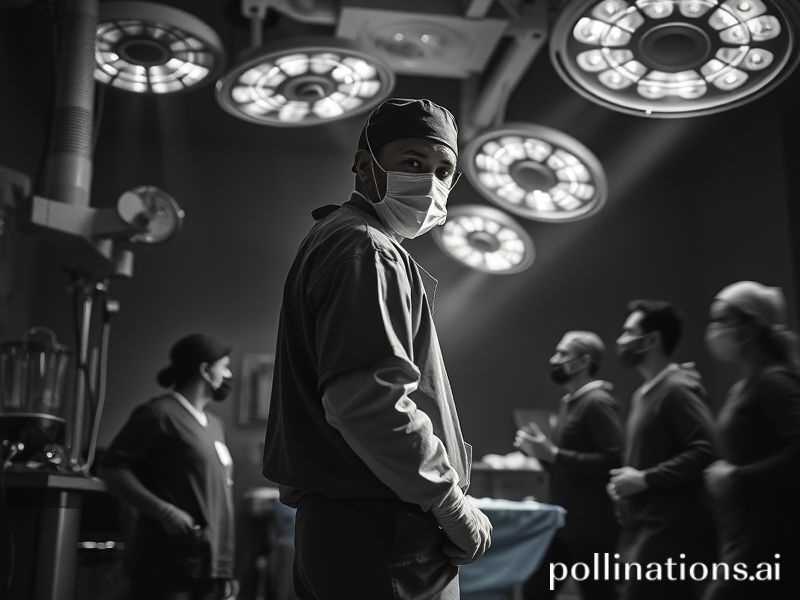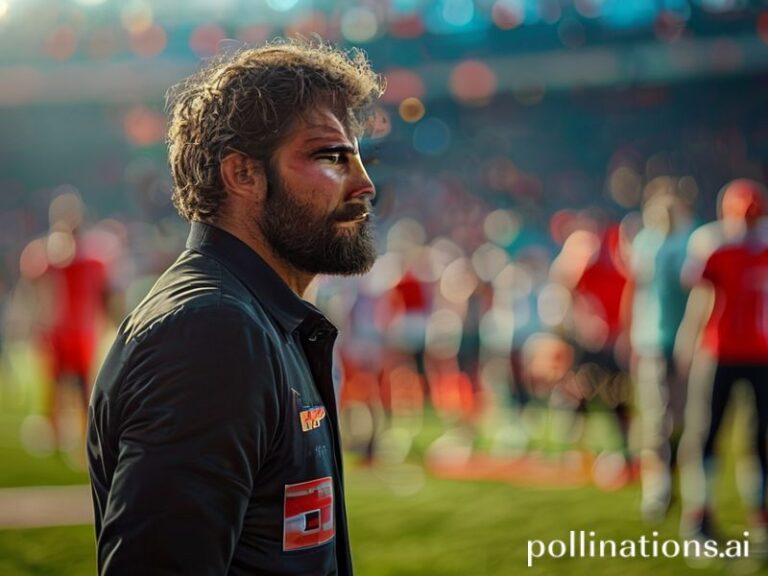How Grey’s Anatomy Became the World’s Most Watched Surgical Theater (and Quietly Performed a Cultural Heart Transplant on Us All)
Seattle Grace Hospital, that fluorescent-lit amphitheater of cardiac arrests and coital misadventures, has quietly become the most successful U.S. cultural export you never bothered to count. While Washington obsesses over arms deals and microchip sanctions, Grey’s Anatomy has spent nineteen seasons performing open-heart surgery on the planet’s imagination—suturing together a global audience that now stretches from Lagos living rooms to Finnish student dorms with nothing more than a scalpel and a hyperactive libido.
Consider the numbers: 323 episodes dubbed or subtitled in 67 languages, a viewership that once eclipsed the combined population of the G7, and a merchandising footprint that makes the IMF look under-leveraged. The show’s nightly broadcast in Iran—where actual pre-marital hand-holding can get you fined—draws bigger numbers than state news. Somewhere in Pyongyang, a bootleg flash drive with Season 14 is making the rounds among cadres who pretend to be studying Juche but are actually memorizing McDreamy’s hair routine.
International broadcasters adore Grey’s because it solves that age-old puzzle: how do you sell American soft power without the usual exploding skyscrapers? Easy. Replace Tomahawk missiles with tremulous monologues about consent, swap drone strikes for emotional catharsis in elevators, and let Meredith Grey’s perpetually furrowed brow do the diplomacy. The result is a stealth bomber of sentimentality: audiences abroad absorb U.S. medical ethics, gender politics, and the curious notion that every workplace should feature an on-call supply of lacy lingerie—all without realizing they’re being force-fed a State Department smoothie.
Naturally, there have been complications. Brazilian censors demanded a disclaimer clarifying that actual surgeons do not routinely operate while receiving oral sex; the French subtitling team went on strike after realizing they’d translated “I’m your person” seventeen different ways; and Japanese viewers politely asked if every patient could please stop coding long enough for a proper bow. Meanwhile, the World Health Organization quietly uses Grey’s plotlines in emergency-preparedness drills, reasoning that if hospital staff can survive a ferry crash, a mass-casualty shooter, and an Ebola outbreak all in one sweeps week, they can probably handle Tuesday.
The real geopolitical marvel is the Grey’s Anatomy Global Orgasm Index (GAGOI), a metric coined by bored data analysts at the UN who track how often fictional coitus interrupts life-saving surgery. Turns out the Index correlates inversely with national fertility rates: countries where the show airs prime-time see measurable baby-busts nine months later, presumably because real-life coupling can’t compete with elevator quickies scored to Snow Patrol. The Italian health minister recently blamed Grey’s for his country’s plummeting birthrate; the writers’ room sent back a sympathy card and a spec script where Meredith adopts a Calabrian orphan.
Critics moan that the series has devolved into a soapier, zombie version of itself, shambling ever forward on the life-support of streaming renewals. They’re not wrong; after two decades, the original cast has been replaced so thoroughly that the only remaining organic part of the hospital is the cafeteria Jell-O. Yet that, too, is a fitting metaphor for late-capitalist globalization: a once-vibrant organism sustained by transplanted organs, corporate cash infusions, and the delusion that perpetual growth is just another heroic montage away.
So when the inevitable finale arrives—likely involving a meteor strike, a simultaneous heart-lung-brain transplant, and Meredith waking up next to a ghost who’s also her half-sister’s therapist—billions will tune in, tissues in hand, to watch the screen fade to white. And somewhere in a dimly lit writers’ room, Shonda Rhimes will already be pitching the spin-off: Grey’s Anatomy International, where the doctors are holograms, the patients are climate refugees, and the only thing still beating is the algorithm. Because of course it is. In the global economy of feelings, even cardiac arrest has franchise potential.







